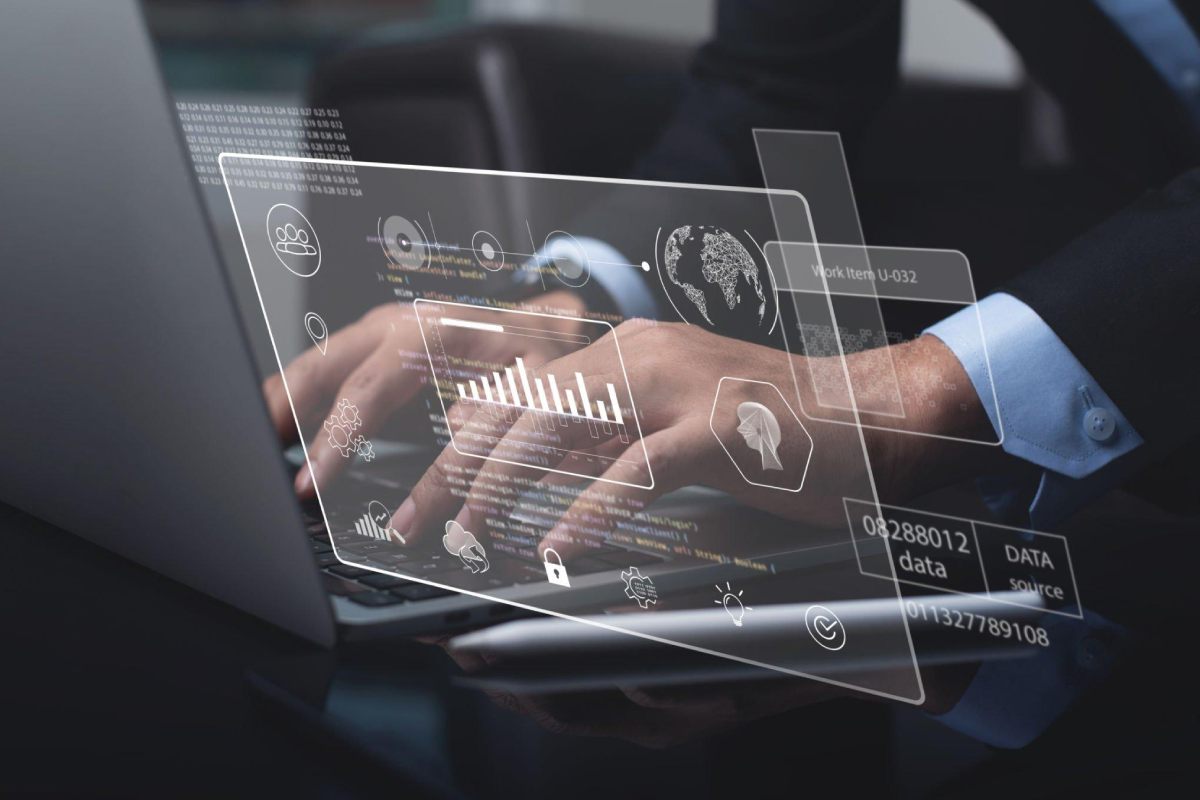Data science has revolutionized various industries, and healthcare is no exception. The fusion of data science in healthcare has ushered in a new era of innovation and transformation, with countless applications, roles, and benefits.
In this blog, we’ll explore the diverse facets of data science in healthcare, from its vital roles to the tangible benefits it offers. Additionally, we will touch upon the relevance of Python tutorials, masters in data science programs, and data science certifications for those aspiring to embark on a career in this dynamic field.
Table of Contents
An Overview
Data science in healthcare involves the collection, analysis, and interpretation of vast amounts of medical data to improve patient care, streamline operations, and drive medical research. This data-driven approach leverages various techniques, including machine learning, statistical analysis, and artificial intelligence, to extract valuable insights from the data.
Applications of Data Science in Healthcare
Data science has an extensive range of applications in healthcare, including:
- Disease Diagnosis: Data science algorithms can process and analyze medical records, lab results, and imaging data to aid in the early and accurate diagnosis of diseases such as cancer, diabetes, and heart conditions.
- Treatment Personalization: By analyzing patients’ data, data science helps in tailoring treatment plans to an individual’s unique needs, optimizing treatment outcomes.
- Drug Discovery: Data science plays a crucial role in identifying potential drug candidates, predicting drug interactions, and accelerating the drug development process.
- Predictive Analytics: Predictive models can forecast disease outbreaks, patient readmissions, and resource allocation, allowing healthcare organizations to proactively address challenges.
- Image Analysis: Computer vision and deep learning techniques are used to analyze medical images, improving the accuracy of radiology and pathology reports.
- Healthcare Fraud Detection: Data science can identify fraudulent claims, reducing financial losses for insurance companies and healthcare providers.
Roles in Data Science in Healthcare
- Data Analyst: Data analysts are responsible for gathering, cleaning, and visualizing healthcare data. They play a vital role in helping healthcare professionals make data-driven decisions.
- Data Scientist: Data scientists develop predictive models, implement machine learning algorithms, and identify patterns and trends within medical data.
- Health Informatician: Health informaticians work on managing healthcare data systems, ensuring data security, and optimizing the use of electronic health records (EHRs).
- Clinical Research Data Manager: These professionals oversee the data used in clinical trials, ensuring data quality, compliance, and integrity.
- Machine Learning Engineer: Machine learning engineers focus on building and deploying machine learning models for healthcare applications.
Benefits of Data Science in Healthcare
- Improved Patient Outcomes: Data-driven insights help in diagnosing diseases earlier and personalizing treatment plans, resulting in improved patient outcomes.
- Cost Reduction: Data science can optimize hospital operations, reducing costs through better resource allocation and fraud detection.
- Drug Discovery Acceleration: The identification of potential drug candidates and the prediction of drug interactions speed up the drug discovery process.
- Enhanced Research Capabilities: Researchers can analyze extensive datasets to make breakthroughs in the understanding of diseases, genetics, and epidemiology.
- Predictive Healthcare: Predictive analytics can forecast disease outbreaks, allowing healthcare organizations to prepare and allocate resources more effectively.
The Role of Python Tutorials
Python is one of the most commonly used programming languages in data science, and it plays a pivotal role in healthcare data analysis. A Python tutorial and course is widely available and are often the starting point for individuals interested in data science in healthcare.
Python’s simplicity, readability, and a rich ecosystem of data science libraries, such as NumPy, Pandas. And scikit-learn, make it an ideal choice for data analysis and machine learning in healthcare. A basic Python tutorial provides a foundation for further education in data science and machine learning.
Pursuing a Master’s in Data Science
For those aspiring to become data scientists or professionals in the healthcare data science field. Pursuing a master’s in data science is a valuable path. A master’s in data science program equips students with advanced knowledge in data analysis, machine learning. And the application of data science in healthcare settings. These programs often include hands-on projects, internships, and research opportunities, allowing students to gain practical experience.
The Relevance of Data Science Certification
Data science certifications are becoming increasingly important, especially in a competitive job market. Earning a data science certification demonstrates proficiency in essential data science skills and can enhance one’s credibility in the field. As datascience continues to play a pivotal role in health-care. Having a data science certification can open doors to various career opportunities.
Datascience is reshaping the health-care industry, offering a multitude of applications and benefits. From personalized treatment to accelerated drug discovery and cost reduction. Various roles within the field are contributing to its growth, with data analysts, data scientists. And health informaticians working together to harness the power of healthcare data.
For those looking to enter this dynamic field, Python tutorials provide an excellent starting point. While pursuing a master’s in data science and earning a data science certification can provide the necessary knowledge. And credentials to excel in this exciting and essential industry. The future of health-care lies in data, and datascience is the key to unlocking its full potential.

